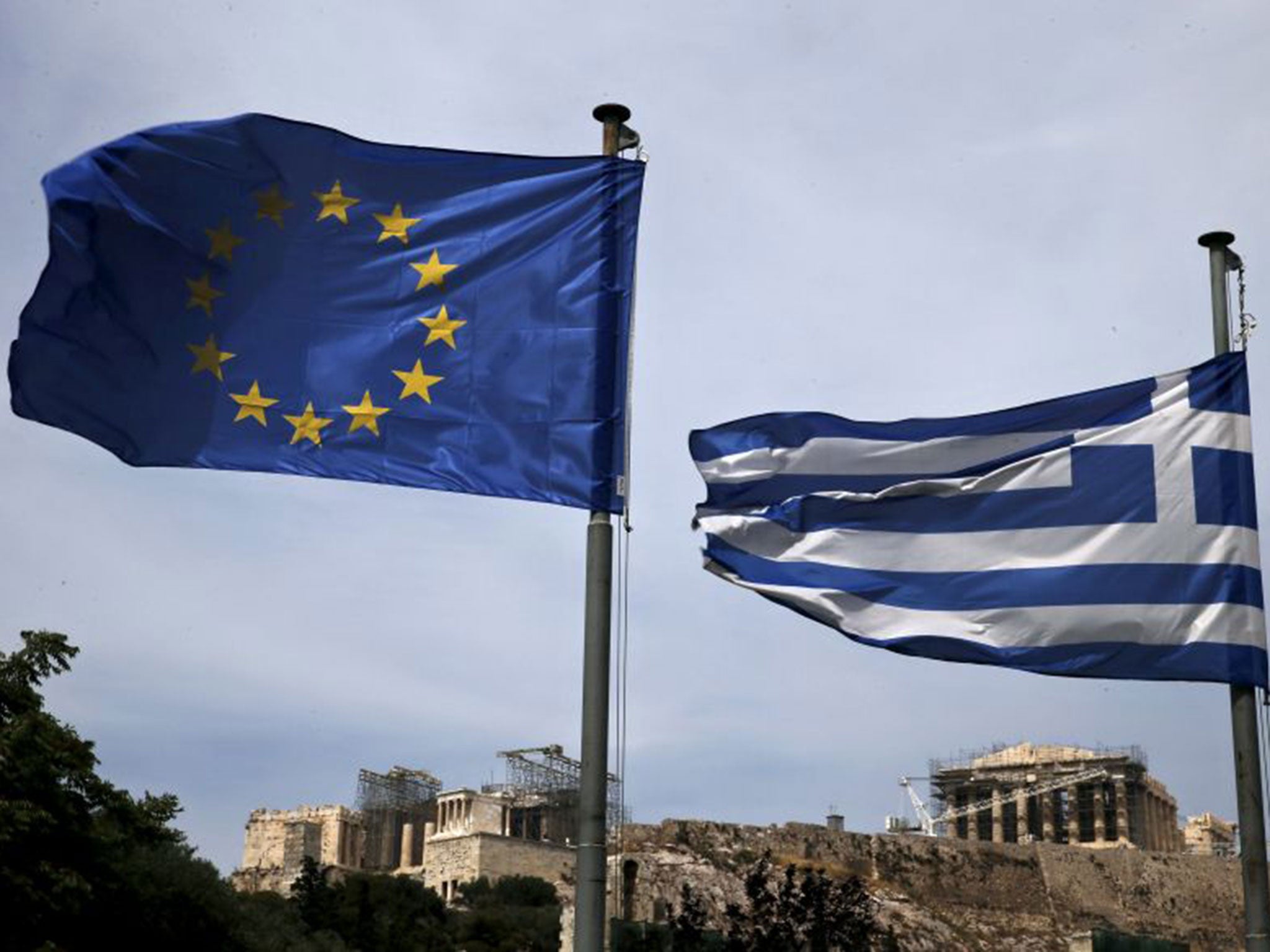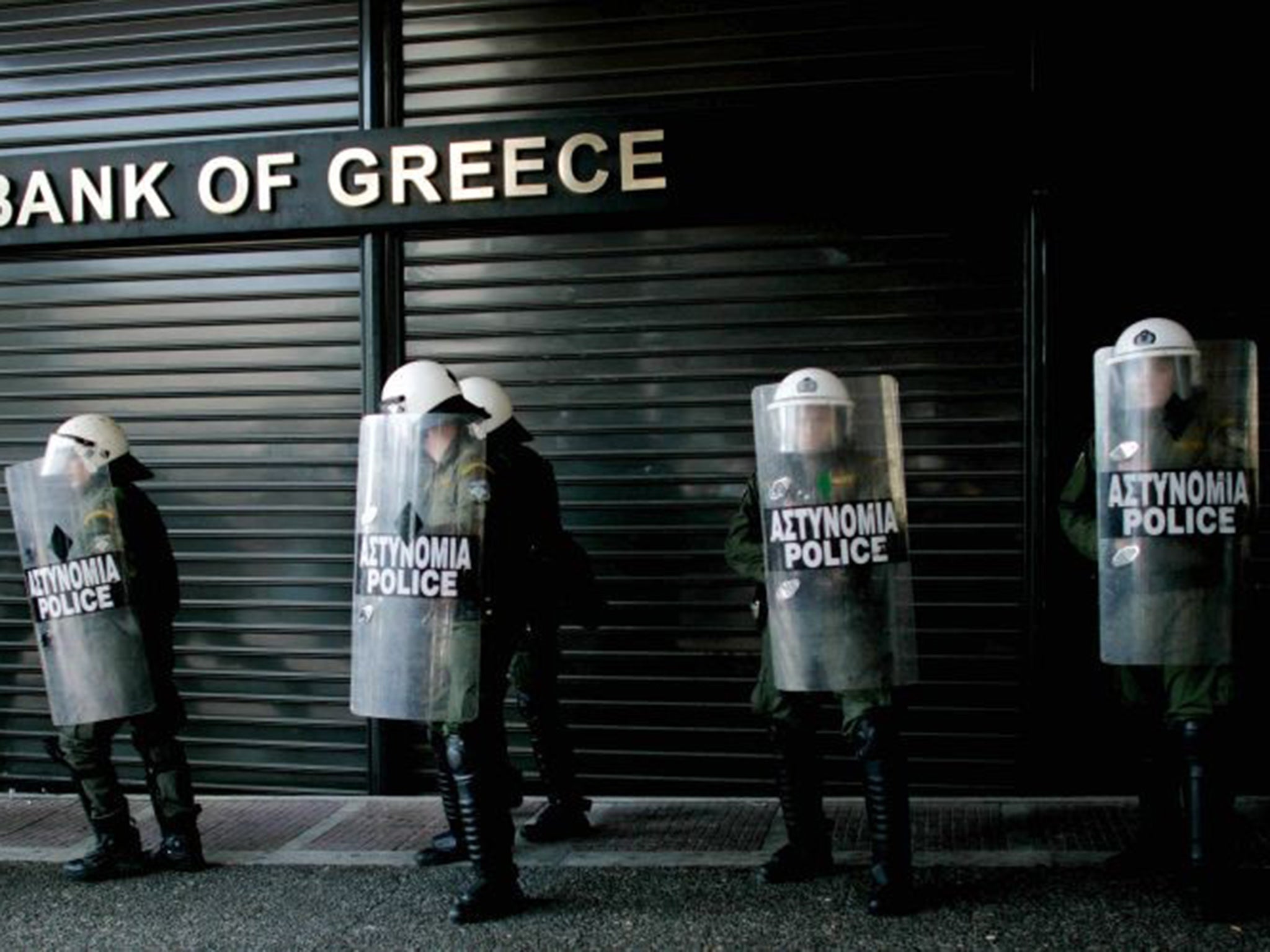Greece crisis: ECB injects emergency cash into Greek central bank to keep it afloat
A a look at the best and worst case scenarios

Greece has secured further last minute emergency funding from the European Central Bank to shore up its finance system as Greeks rush to withdraw their cash.
The extra funding, known as the emergency liquidity allowance, will stop the Greek central bank from running out of cash.
But it is believed to be only enough money to keep the bank afloat until Monday.
Fears of a run on the banks has also prompted more talks to be called as soon as possible. Eurozone finance ministers are meeting on Monday, before a meeting of the eurozone leaders on Monday night to discuss the Greek crisis.
As the deadline gets closer, a deal seems even further away, with both sides trading insults this week. A 'critical' meeting last Sunday ending after just 45 minutes.
So what is the best and worst scenario for Greece?
Best case
If Greece won’t agree to the reforms on the table, why haven’t the International Monetary Fund and the European Commission just let it go bust?
The last time Greece was teetering on the edge of default was 2010, when it owed money to lots of foreign banks.
If Greece had defaulted, or failed to pay those debts, in 2010 it may have dragged foreign banks in countries still vulnerable from the 2008 crash down with it. The Irish, Portuguese and Spanish economies were at stake.
This time, because government-back institutions such as the IMF and EC stepped into to stop Greece defaulting in 2010, Greece owes money to governments. Its debt is effectively isolated.
Despite this, eurozone leaders don’t want to walk away from a deal. They want to prove that the eurozone can work as a political, rather than an economic experiment – especially as other vulnerable economies like Ireland, Spain and Portugal are already on IMF bail-out programs similar to the one that is being offered to Greece.
The best case scenario is that they fudge a deal. The Bank of Greece said in a statement that the negotiations are already close.
Greece will likely agree to some concessions in return for some money.
Greek Finance Minister Yianis Varoufakis cuts a tired figure as he listens to the Prime Minister Alexis Tsipras addressing his MP's and ministers at the Greek Parliament
Worst case
If Greece does exit from the euro, the results will be far worse for the Greeks than for the rest of Europe.
The far-left Syriza party is fighting hard against the austerity policies the Eurozone ministers are after. They were elected to do that by a Greek public dismayed by years of austerity after the crisis in 2010.
A Greek exit from the euro would result in its banks going bust and ordinarily people waking up to find their life’s saving worthless. That’s why so much money has already been taken out of the banks (see chart).
Greeks could turn to even more extreme politics in the aftermath. Greece’s neo-fascist party, Golden Dawn, could team up with the communists and take a combined 12 per cent of the vote, according to the Economist.

Greek prime minister Alexis Tsipras is already courting Putin. Grexit could cement that union and see Greece harden its position towards Europe.
The political union around the euro would seem much weaker after Grexit, which might put other peripheral members like Spain and Portugal at stake in the event of another crisis.
Grexit would then be much worse for Greece than for the rest of Europe. But there are plenty of good reasons why Greece’s creditors aren’t willing to give up on a deal just yet.
Join our commenting forum
Join thought-provoking conversations, follow other Independent readers and see their replies
Comments